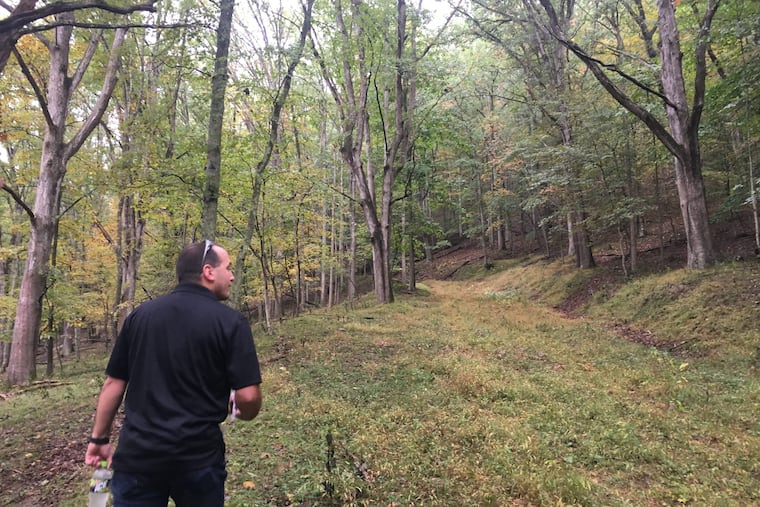The FBI worried that Pennsylvania might try to claim Civil War gold in Elk County, documents show
Everyone caught gold fever, including an unnamed staff member for the state legislature who offered to obtain dig permits for three gold bars.

A recently unsealed document in the bizarre case of an alleged cache of Civil War treasures in Elk County, Pa., shows how everyone caught gold fever, including an unnamed staff member for the state legislature who offered to obtain dig permits for three gold bars.
The FBI in Philadelphia spent several frigid days in March 2018 digging for gold at Dents Run and has long said nothing was found in the excavation. The treasure hunters who had been studying the site for decades had always thought the agency was lying.
A March 2018 application for a warrant to seize property, unsealed on behalf of The Inquirer and the Associated Press, reveals the FBI had done its homework on the gold, even if the story turned out to be a fairy tale.
“I have probable cause to believe that a significant cache of gold is secreted away in the underground cave located at Dents Run,” Agent Jacob Archer of the FBI’s art crime team wrote in the 2018 warrant application.
The legend of the Elk County gold dates back to the summer of 1863, when a special Union detachment was tasked with transporting 26 gold bars, each weighing 50 pounds, from West Virginia to the U.S. Mint in Philadelphia. That detachment, as the story goes, was ambushed, the gold lost and supposedly buried.
Archer, according to the warrant application, consulted with father-and-son treasure hunters Dennis and Kem Parada, as well as Warren Getler, a journalist who has written extensively about Civil War gold, but Archer also dug deeper into the history, going through U.S. Mint and other national archives as well as reaching out to a variety of experts.
The FBI went to the site several months before the dig to scan the area and then hired a private contractor to scan as well. The findings looked promising.
“They didn’t just take our word for it, they did their own investigation,” Bill Cluck, an attorney for the Paradas, said Thursday.
Since the gold, possibly one ton or more, was heading to the Mint, Archer wrote that it all belonged to the U.S. government.
The gold, if there, was on state land, and Archer was concerned that Pennsylvania’s Department of Conservation and Natural Resources could revoke the FBI’s access to the site and claim the gold was “abandoned property” and keep it. According to the application for the warrant, a camera at the site captured an excavating machine working at the site in 2015, and Archer said it was believed to be the DCNR.
A DCNR spokesperson said the agency declined to comment “on this ongoing matter.”
The warrant application also added a bizarre twist, alleging that in August and September of 2013, an unnamed staff member for the Pennsylvania legislature approached the Paradas, claiming he was acting on behalf of individuals who control DCNR money and work in the governor’s office. This person, according to the warrant application, met with the Paradas, and “corruptly” offered to obtain a permit to dig at Dents Run in exchange for three bars of gold or 10% of the total haul.
“I was present and aware and reported it to the FBI,” Cluck said when asked Thursday about the man. “I told this person that what they were offering was illegal and never to contact us again.”
Cluck declined to identify the individual.
The application also asked for 24-hour security at the dig site, permission to cross any private property, and an assortment of tools and equipment. Cluck noted that the FBI has not filed paperwork that explicitly states that nothing was found.
There is no estimate in the application of how much the FBI spent during the investigation and the ensuing dig. An FBI spokesperson declined to comment Thursday.
Nothing in the document says the FBI intended to give any found gold to the Paradas, who had spent decades searching.
Had the FBI found gold, Cluck said, Dennis Parada deserved a cut and the vindication.
“First of all, he wanted verification that he was right,” Cluck said of Parada. “They would have made us sue them to get it. "